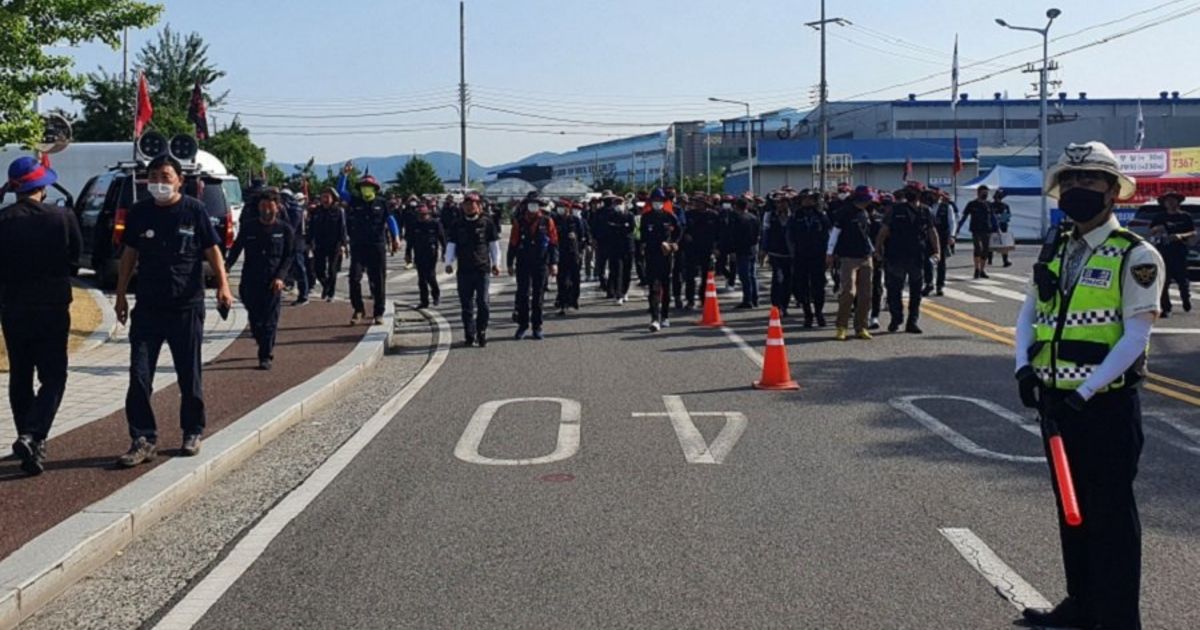
SEOUL — Production at Hyundai‘s biggest factory complex fell by half on Thursday because of component shortages caused by a truckers’ strike in South Korea, a union official at the automaker said.
The automaker’s Ulsan plants operated at about 50 percent to 60 percent of capacity due to parts procurement issues the strike caused.
Hyundai normally builds about 6,000 vehicles a day at its Ulsan factories including the high-margin Genesis SUV and Ioniq 5 EV.
With trucks unavailable because of the strike, Korean companies are seeking alternative ways to transport goods. At Hyundai affiliate Kia, employees were spotted driving newly produced cars on the streets to warehouses.
Hyundai said it has experienced partial production disruptions at its Ulsan plants and is monitoring the situation closely.
Thousands of South Korean truckers have been on strike this week to protest the surge in fuel costs, disrupting production, slowing activity at ports and posing new risks to a strained global supply chain.
It’s uncertain how long the strikes will continue, but a prolonged dispute threatens to have ripple effects across the globe.
South Korea is a major supplier of semiconductors, smartphones, autos, batteries and electronics goods and the latest industrial action further raises uncertainty over supply chains already disrupted by China’s strict COVID restrictions and Russia’s invasion of Ukraine.
Container traffic at ports in South Korea has slowed sharply.
At the port for Ulsan, the industrial hub where much of the strike action has occurred, container traffic has been completely suspended since Tuesday.
At Busan port, which accounts for 80 percent of the country’s container activity, traffic was down to a third of normal levels on Friday, a government official said.
Some 7,500 members, or about 35 percent of the Cargo Truckers Solidarity union, are expected to be on strike on Friday, the transport ministry said.
Reuters and Bloomberg contributed to this report